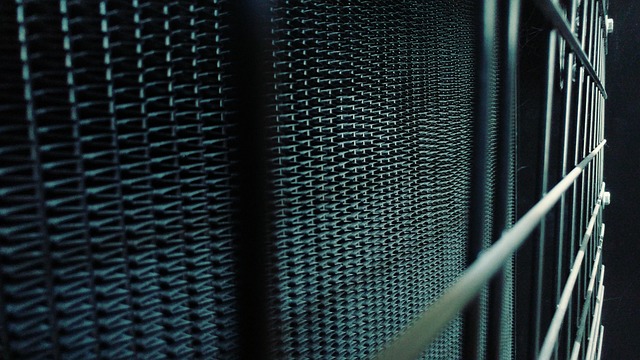Smart electric boilers are transforming home heating with their efficiency, control, and integration into modern automation systems. These advanced devices allow remote management via smartphones or voice assistants, optimize energy usage based on demand, offer clean and eco-friendly operation, and provide precise temperature control. Integrating a smart electric boiler with home automation enhances energy management, reduces costs, and contributes to sustainable living environments. This digital shift in heating technology promises significant energy savings and a greener future.
“Discover the future of home heating with smart electric boilers—a revolutionary blend of efficiency and control. Integrating these advanced systems into your home automation network offers unparalleled convenience and energy savings. This comprehensive guide explores the benefits, essential components, and step-by-step setup process for transforming your heating experience. From understanding the technology to envisioning the trends shaping the industry, we delve into how smart electric boilers are becoming a game-changer in modern homes.”
- Understanding Smart Electric Boilers: Unlocking Efficiency and Control
- Integrating with Home Automation: The Benefits for Modern Homes
- Key Components: Creating a Seamless Connection
- Setting Up Your Smart Boiler System: A Step-by-Step Guide
- Future Prospects: Trends Shaping Home Heating Automation
Understanding Smart Electric Boilers: Unlocking Efficiency and Control

Smart electric boilers are transforming the way we heat our homes, offering a blend of efficiency and control unmatched by traditional boiler systems. These advanced devices integrate seamlessly with modern home automation platforms, allowing users to manage their heating from the comfort of their smartphones or voice assistants. By leveraging smart technology, electric boilers can optimize energy usage based on real-time demand, significantly reducing electricity consumption and associated costs.
Unlike electric central heating or residential electric boilers of yesteryear, today’s electric heating systems boast clean, eco-friendly operation, making them a preferred choice for environmentally conscious homeowners. Electric HVAC systems provide consistent and precise temperature control, eliminating hot spots and cold zones that can plague older boiler systems. This level of precision translates to improved comfort and reduced energy waste, contributing to a more sustainable future with every cycle.
Integrating with Home Automation: The Benefits for Modern Homes

Integrating a smart electric boiler with home automation offers numerous advantages for modern homes. By seamlessly connecting to existing automated systems, these boilers can be controlled and monitored remotely, providing homeowners with unparalleled convenience and energy efficiency. This integration allows for precise temperature regulation, where users can adjust settings from their smartphones or tablets, ensuring an ideal indoor climate at all times.
Moreover, smart electric heating systems enhance overall energy management. Homeowners can program boiler operations based on occupancy and time of day, reducing unnecessary energy consumption. This functionality, coupled with real-time monitoring, enables the identification of peak usage periods and potential inefficiencies, leading to significant cost savings on utility bills. Such advanced control and optimization make residential electric boilers a game-changer in modern home automation, promoting clean heating systems and contributing to a more sustainable living environment.
Key Components: Creating a Seamless Connection

Integrating a smart electric boiler with home automation creates a seamless connection between your living space and energy management. Key components include advanced communication protocols, such as Wi-Fi or Zigbee, which enable real-time data exchange between the boiler and central control systems. This allows for precise temperature control and scheduling from smartphones or tablets, ensuring optimal comfort while minimizing energy consumption.
The electric heating systems offer a clean and efficient alternative to traditional gas or oil boilers, with residential electric boilers proving particularly popular in urban areas where space is limited. By incorporating these advanced boiler systems into home automation networks, users can take advantage of energy-efficient heating solutions that enhance indoor comfort while contributing to environmental sustainability through reduced carbon footprints.
Setting Up Your Smart Boiler System: A Step-by-Step Guide

Setting up a smart electric boiler system is an exciting way to modernise your home’s heating and improve energy efficiency. Here’s a simple step-by-step guide to help you get started. First, choose a compatible electric boiler designed for seamless integration with popular home automation platforms like Nest or Honeywell. Ensure it suits your residential electric boilers needs in terms of capacity and temperature control.
Next, install the boiler according to the manufacturer’s instructions, focusing on proper ventilation and safety measures. Once installed, connect the boiler to your chosen home automation system using the provided connectors or APIs. Configure the system settings, including scheduling, temperature adjustments, and remote access preferences. With these initial steps complete, you’ll be able to harness the benefits of clean heating systems and energy-efficient electric heating technology, enhancing both your home’s comfort and environmental sustainability.
Future Prospects: Trends Shaping Home Heating Automation

The future of home heating is looking increasingly digital and automated, with a growing trend towards integration of electric boiler systems into broader home automation networks. This evolution is driven by a confluence of factors, including increasing environmental concerns pushing for cleaner heating solutions, advancements in electric heating technology, and the need for more energy-efficient homes. As a result, residential electric boilers are expected to play a prominent role in future smart homes, enabling users to control and monitor their heating systems remotely via mobile apps or voice assistants.
Electric HVAC systems offer significant advantages over traditional gas or oil boiler systems, such as reduced emissions, lower operational costs, and quieter, more efficient heating. The integration of these electric heating systems with home automation promises even greater benefits, including personalized temperature settings for different zones within the home, predictive energy usage analysis, and automated adjustments based on occupancy and time of day. This trend towards smart, connected electric space heating is not only reshaping the residential heating market but also underscoring the potential for significant energy savings and a more sustainable future.
The integration of smart electric boilers into home automation systems represents a significant leap forward in domestic heating technology. By combining efficient energy management with the convenience of automated control, these innovative solutions offer both comfort and cost savings. As the market for smart homes continues to grow, expect even further advancements in electric boiler design, enhancing the overall efficiency and sustainability of our living spaces.






